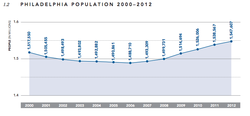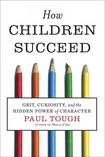
Approximately half of the teachers in Philadelphia have five years of experience or less and chances are many of these teachers are young. If want to keep these young people around in order for them to become veteran educators in the system, we need to do something to retain them. Many principals call for an easier process to let go of low-quality teachers when there are so many good ones who are leaving in droves because of environmental issues at their schools (shuffling between classrooms, large class sizes, ineffective discipline policies, ineffective leadership, etc).
Philadelphia is a great city and a great place to teach. We need to showcase that to the world and not lose out because of poor decisions like ones being offered right now.



 RSS Feed
RSS Feed
